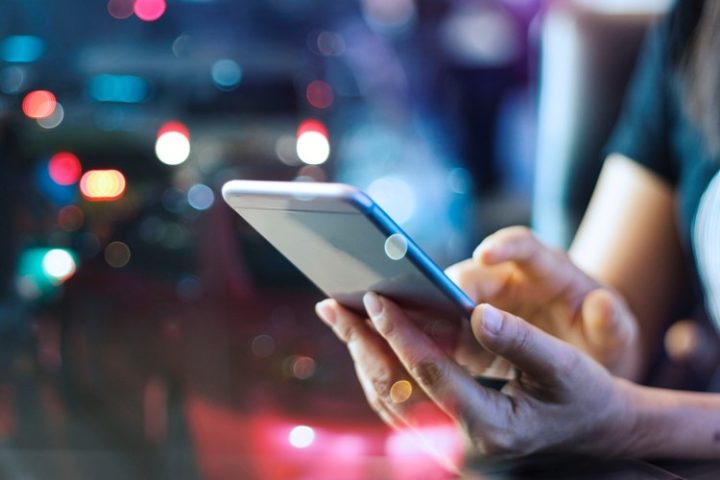
Last Fall, Franciscan University of Steubenville offered a unique scholarship that awarded $5,000 to undergraduate students who would give up their smartphones for the academic year. With the close of the Spring semester marking the end of the academic year, those students who were awarded the scholarship have been smartphone-free for nine months. And they say it has changed their lives.
The “Unplugged Scholarship” was created by Justin Schneir and his wife, Hope (both graduates of the class of 1999), along with other alumni to “help students give up smartphones, focus on prayer, friendship, and academic excellence,” according to the announcement of the launch of the scholarship. As that announcement stated:
Franciscan University alumni Justin Schneir ’99 and Hope (Batchelder) Schneir and a small group of alumni initiated the Unplugged Scholarship, which has raised over $3 million, to foster a community of academic excellence, friendship, and spiritual growth. The group hopes to encourage wholesome interpersonal relationships that better reflect Christ’s incarnational model.
“The attack on Christian culture has gone beyond the attack on the family, or the clergy, or fatherhood, but now aims at humanity itself,” said Hope Schneir. “We need to find ways to reclaim what it means to be human, to live out the adventure of life to the full, and to more fully embrace our God-made world, rather than this man-made, artificial one.”
The Schneirs expressed their hope that this scholarship will be a step in reclaiming that adventure.
Mrs. Schneir stated, “We hope these brave students pioneer an unplugged lifestyle that carries into their vocations as businesspersons, educators, religious leaders, medical professionals, mothers, and fathers, and that they might be free and more capable to make their lives ‘something beautiful for God.”
And it appears that hope was well-founded. According to the announcement:
Student enthusiasm for this scholarship has surpassed expectations. Of the almost 170 students who applied for the $150,000 pilot phase of the Unplugged Scholarship, 30 students spread across all four class years each received $5,000 in tuition assistance for the 2022-23 academic year. However, almost 50 additional student applicants chose to give up their smartphones and participate, even without receiving financial assistance.
In a world of constant connectivity, it is positively counter-cultural that 80 university students would part with smartphones. After all, Androids and iPhones are so much a part of everyday life that to call them ubiquitous seems an understatement. So, how would students fare separating themselves from the constant flow of beeps, dings, and buzzes alerting them that someone somewhere was doing something? From the very beginning, students said ditching their smartphones was a positive experience. Again, from the announcement:
As Tim Delaney, Franciscan University executive director of Alumni and Constituent Relations, explained, all 80 participating students will form a new group called “Humans Engaging Reality.” They recently met to share about what life has been like these first days without a smartphone.
“There were some funny stories shared, like getting lost in an airport and needing to ask a real person for directions,” said Delaney. “Other stories were more heartfelt. One shared about how giving up his smartphone is helping in the struggle with pornography. Another student shared about being diagnosed with depression and anxiety, only to have both disappear soon after she gave up her smartphone!”
“When I first heard about this Unplugged Scholarship my immediate reaction was, ‘Awesome!’” said scholarship recipient and Franciscan University senior Mary Saarinen of Laurel, Maryland, a theology major. “This scholarship challenge would push me to be present to the person in front of me, to look up and take in my surroundings as I walk across campus, and to detach from the need to entertain myself whenever I feel like it.”
Fellow scholarship recipient, Michael Van Vickle, a sophomore in finance from Irving, Texas, agrees.
“I think this is a perfect opportunity for me to let go of my phone and put more time and energy into things that matter,” he said. “It is much harder to stay on the path of holiness when you have a million things jumping out at you.”
That was a great start. And nine months later, students are saying that unplugging has changed their lives. As Catholic News Agency (CNA) reports:
As Franciscan University of Steubenville students wrap up their spring semester, a large group of its undergraduates will be heading into summer significantly changed after participating in the school’s invitation to drop their smartphones.
“It had way more of an effect on me than I thought it would,” Grace Pollock, a sophomore nursing major at the private university in Steubenville, Ohio, told CNA May 3.
Pollock has seen an improvement in her focus and productivity and spent more time doing outside activities and reading since joining the school’s “Unplugged Scholarship,” which began its pilot run in the fall semester of 2022.
Pollock was not alone in her praise of a smartphone-free life. Also featured in the CNA article were 21-year-old junior Paul Merkel and 18-year-old freshman Theresa Ryan. Merkel replaced his smartphone with a simple flip phone. He told CNA, “Almost immediately I noticed that my mind was a lot clearer after a week of not having a smartphone.” He said his friends noticed his phone — which he says “looks like it’s from 2003” — and he has been able to use it to spark real conversations with real people about device dependence. He said many of his friends have said, “I wish I could give up my smartphone, but I just can’t.”
Ryan said that cutting her digital leash has helped her prayer life. While — like almost all of us — she still has some difficulty focusing on prayer, she said that not having a smartphone took away “a big obstacle” so she could “be present to the inspiration of the Holy Spirit.” She also said that without a smartphone, “I could just sit down to pray and it was so much easier to be present.”
And it is not just her prayer life that has improved. Ryan has also noticed that she is now more present to people around her. “I think it’s a great way to actually see the people in front of you rather than looking at your screen when you’re uncomfortable in a situation,” she said. Of course, now that she has ditched her smartphone and is aware of people, she has noticed that those other people are not always present to her. “There’s constantly notifications going off, so whenever I’m talking to someone, they’re constantly picking up their phone, looking at it and putting it down,” she noted.
The idea of cutting the leash is appealing. To put in the for-what-it’s-worth column, while working on this article, this writer has noticed that every few minutes, his smartphone has nagged him for attention in a way that would be annoying if a person did it. I may just have to figure out a way to cut that thing loose.




